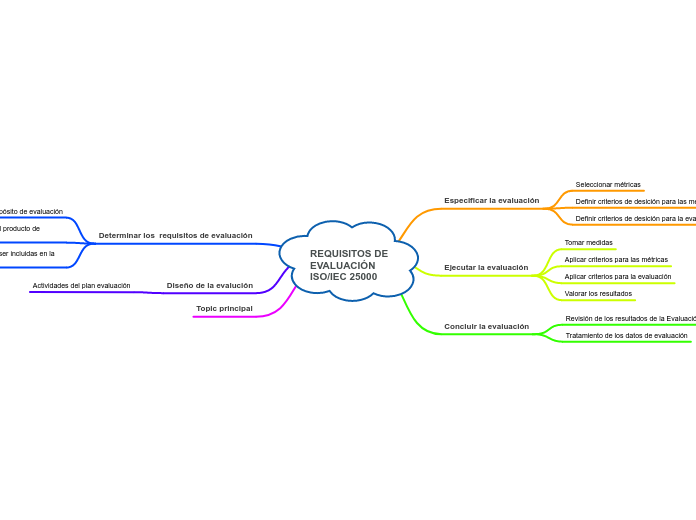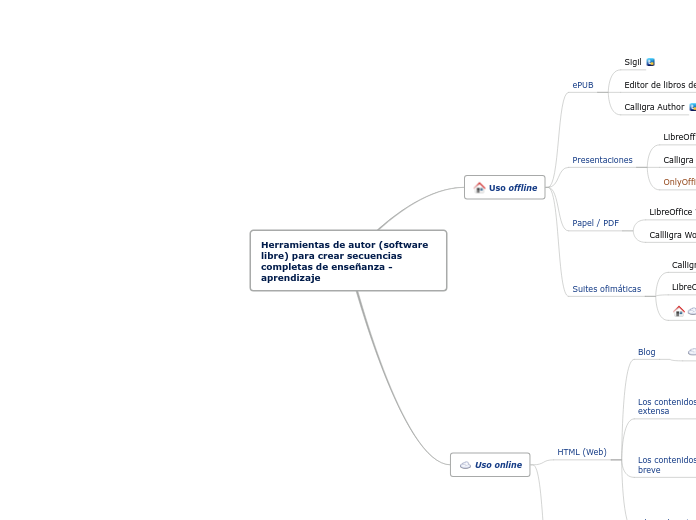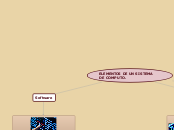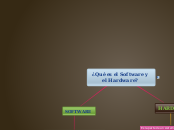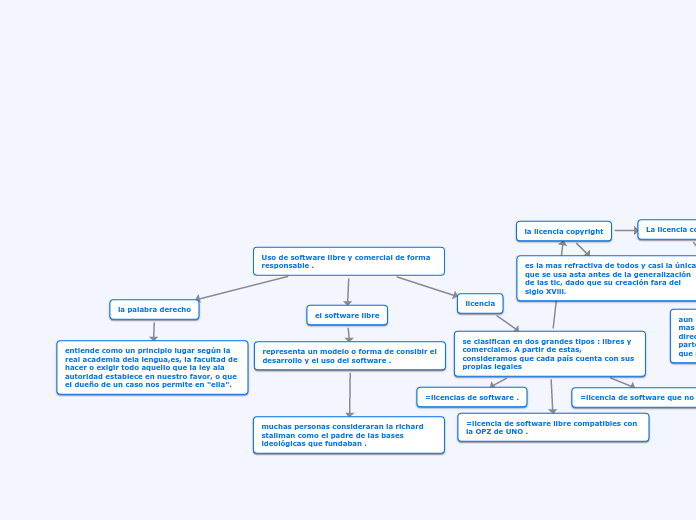REQUISITOS DE EVALUACIÓN ISO/IEC 25000
The part of speech is a category to which a word is assigned according to its syntactic functions. In English the main parts of speech are noun, pronoun, adjective, determiner, verb, adverb, preposition, conjunction, and interjection.
Topic principal
Diseño de la evalución
A conjunction is a word like 'if' 'but' or 'and' which is used to connect sentences or clauses together.
Actividades del plan evaluación
Determinar los requisitos de evaluación
An adverb is used to describe a verb, but it can also describe an adjective or another adverb.
Adverbs normally help paint a fuller picture by describing how something happens.
Identificar las partes del producto a ser incluidas en la evaluación
Obtener los requisitos de calidad del producto de Software.
Establecer propósito de evaluación
Concluir la evaluación
Tratamiento de los datos de evaluación
Revisión de los resultados de la Evaluación
Ejecutar la evaluación
A pronoun is a word that can be used in place of a noun, typically after the noun itself has already been stated.
Valorar los resultados
Aplicar criterios para la evaluación
Unlike demonstrative pronouns, which point out specific items, indefinite pronouns are used for non-specific things. This is the largest group of pronouns. All, some, any, several, anyone, nobody, each, both, few, either, none, one, and no one are the most common.
Aplicar criterios para las métricas
Relative pronouns are used to add more information to a sentence. Which, that, who (including whom and whose), and where are all relative pronouns.
Tomar medidas
A reflexive pronoun ends with ...self or ...selves and refers to another noun or pronoun in the sentence (usually the subject of the sentence). The reflexive pronouns are myself, yourself, herself, himself, itself, ourselves, yourselves, and themselves.
Especificar la evaluación
A verb is an action word or 'doing' word that signifies movement in some way.
Definir criterios de desición para la evaluación
Definir criterios de desición para las métricas
Seleccionar métricas
A modal is a type of auxiliary (helping) verb that is used to express: ability, possibility, permission or obligation. The main modal verbs in the English language are: can, could, may, might, must, shall, should, will, would.
